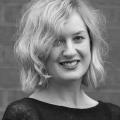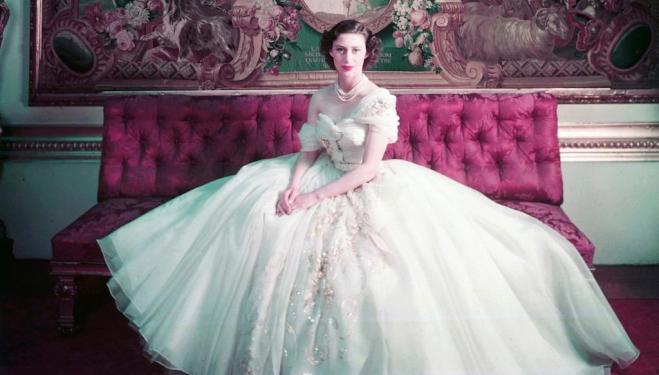Otegha Uwagba interview: talking careers with the founder of Women Who
Culture Whisper meets the founder of Women Who, author of The Little Black Book and host of new podcast In Good Company

Culture Whisper: Can you tell us a little bit about your company Women Who?
Otegha Uwagba: I launched Women Who about two years ago as a networking platform, primarily for those who work in the creative industries. I wanted to connect and support working women, especially those who are self-employed.
CW: What inspired you to go into the field of career advice specifically?
OU: The internet and social media have really changed the way we’re approaching making a living. I found myself speaking to lots of women who felt the traditional career models weren’t right for their ambitions, and found myself in that boat too. Women Who felt like a logical response to that.
CW: You were already a writer and brand consultant before you launched your own company. How do you feel those areas have informed your business?
OU: I started my career at an advertising agency and I didn't realise at the time how much I'd use those skills in what I'm doing now. Having an understanding of branding, marketing and packaging up a brand – especially your own – is so important. I use my brand skills on a daily basis, while knowing how to write web copy was so useful when I came to make the website for Women Who.

CW: You’ve made it onto the 2018 Forbes 30 under 30 list. How did that feel?
OU: [laughs] It was a really nice surprise.
CW: What made you decide to set up your podcast In Good Company?
OU: The podcast came about because I wanted to share what I do to help women on a wider scale. Audio is such a great medium to convey information. You can listen to podcasts all over the world, which means you don't have to be able to make a London-based event to access the resources provided. Unlike written interviews, podcasts are a chance to hear people’s voices and thoughts unfiltered.
CW: Is the experience of actually running the podcast what you expected?
OU: I was quite well-prepared. I'd listened to so many podcasts and done lots of research around the practical side of things, so from that point of view there weren't any surprises. The biggest (and best) surprise was how warm and receptive listeners were to it. I’m also learning as I go; I’ve found 45 minutes to an hour feels about right for covering a topic and hearing what my guests have to say.
CW: What have you enjoyed most so far about hosting it?
OU: I really enjoy the process of being in the booth and chatting to my guests. The rest of it is more practical – the research, editing and backend side of things. I also love getting to set the agenda and having control over what questions I ask, rather than relying on a moderator. I’m always genuinely interested in hearing my guests’ answers and hope the listeners are too. The whole experience of hosting In Good Company feels like reconnecting with what I've been trying to do with Women Who: offering advice to successful women that’s both accessible and adaptable to their day-to-day lives.

CW: Have there been any struggles or hiccups along the way with it along the way?
OU: I was putting a lot of pressure on myself for the first few episodes to sound and come across a certain way. Since I’ve relaxed into it, I’ve definitely started enjoying the creative process more. Now running the podcast is one of the most enjoyable parts to what I do – which can only be a good thing.
CW: What do you hope listeners are taking away from In Good Company?
OU: Without wanting to sound too cheesy, I hope they listen and feel inspired to go out there and make their ideas happen. The thing that all the women I interview have in common is that they've done just that; they’re ordinary women with great ideas. I hope it makes my listeners realise that if you have a great idea, you work hard and you're nice to people, you can get quite far.
CW: Tell us about The Little Black Book. What inspired you to write it?
OU: The book came about as a way of launching Women Who. So the two went very much hand-in-hand. When I looked at the career books already on the market, didn't feel there was one that really spoke to me. I found reading career guides like sifting through someone else's life experiences, while trying to locate the little bits of wisdom so you can apply them to your own situation. There's nothing wrong with writing a book like that, but I knew that's not what I wanted to do. That's also why my book is quite short; I wanted it to be snappy, digestible and practical.
CW: It became a Sunday Times best-seller, which speaks for the demand for it. How did that feel?
OU: I didn't see that coming at all, but I’m very pleased. I found out via a text from my editor; it was amazing.

Otegha’s London...
Where do you like to go for coffee?
I love an independent coffee shop called Brooks & Gao in Streatham. It does the most incredible banana bread topped with tahini and honey.
To eat?
I love the King’s Cross branch of Caravan for a casual dinner. Although I’ve never forgiven them for taking their pina coladas with burnt thyme off the menu. I also love restaurants where I can sit at the bar, like Ducksoup in Soho.
For drinks?
Bar Story in Peckham. I grew up in south London and it’s where I always used to go in the summer holidays with my uni friends.
To exercise?
I used to run religiously in Victoria Park when I lived near there. Now everything around me is pedestrianised and I don't like running on the roads, so I’m not doing as much as I used to!
What are you favourite beauty brands?
I love NARS and Bobbi Brown for make-up.
And finally, to relax?
Eating out is one of my favourite chill-out activities. I also love a walk along the Southbank and going to galleries when there’s an interesting exhibition on.



